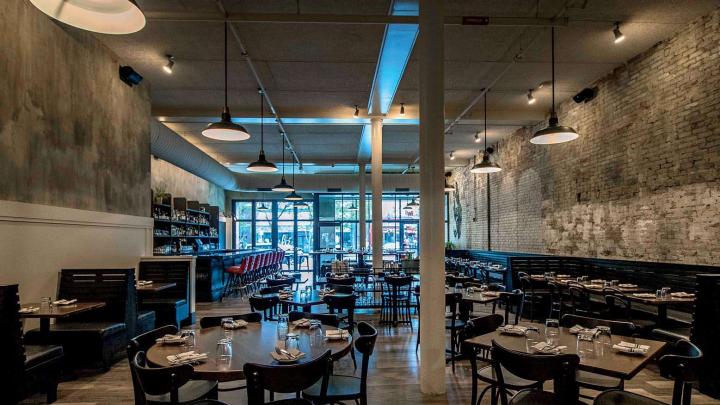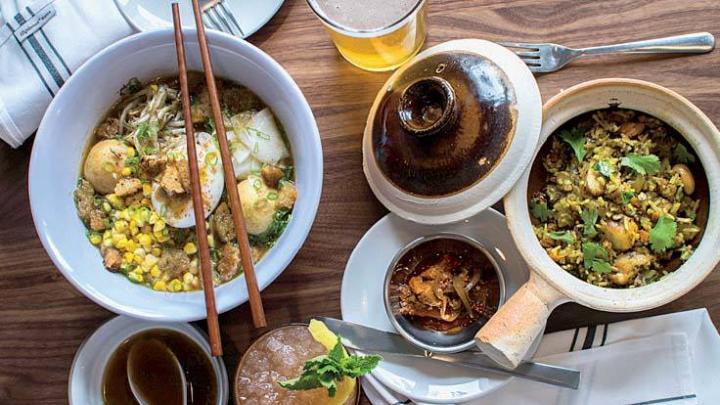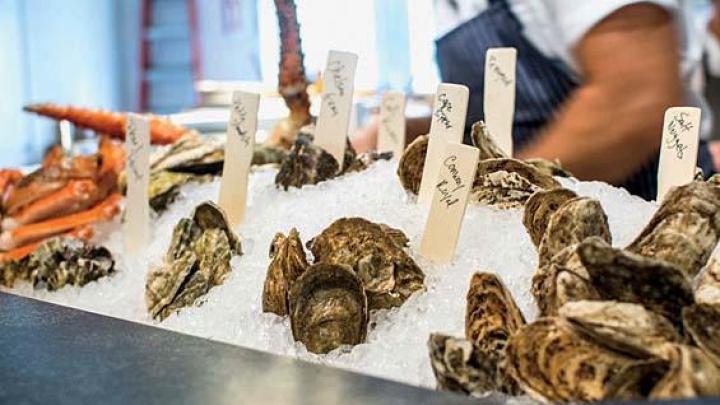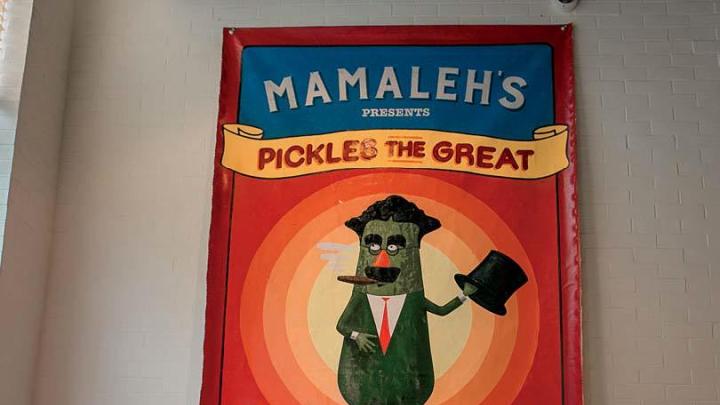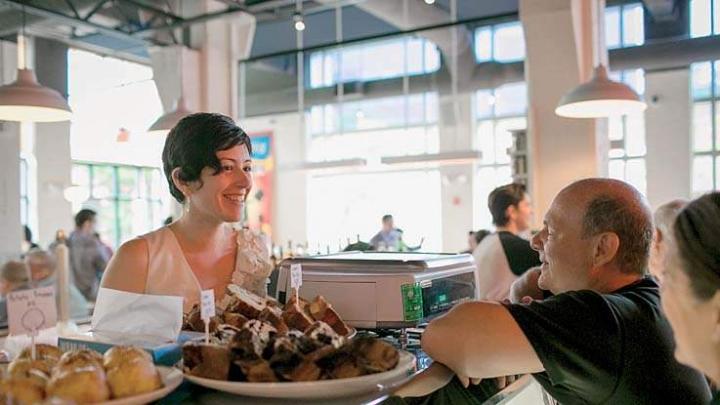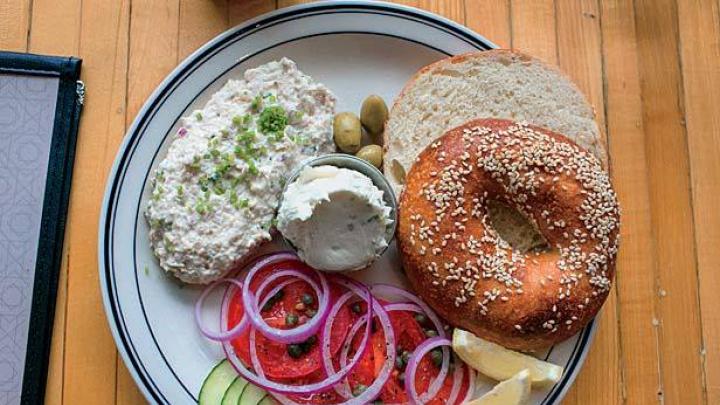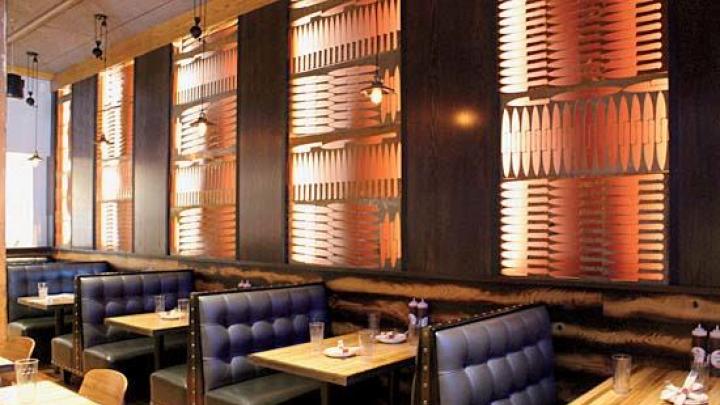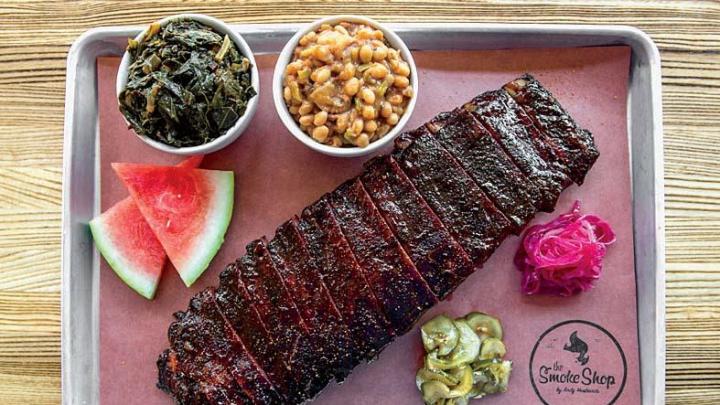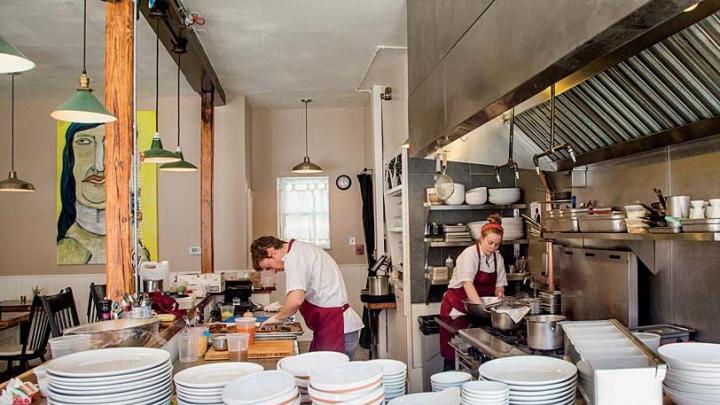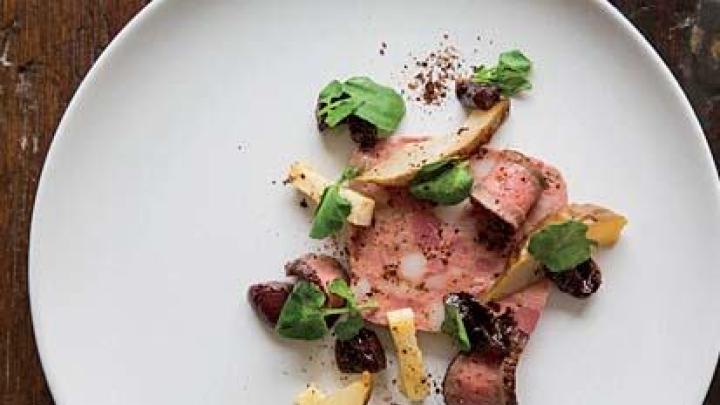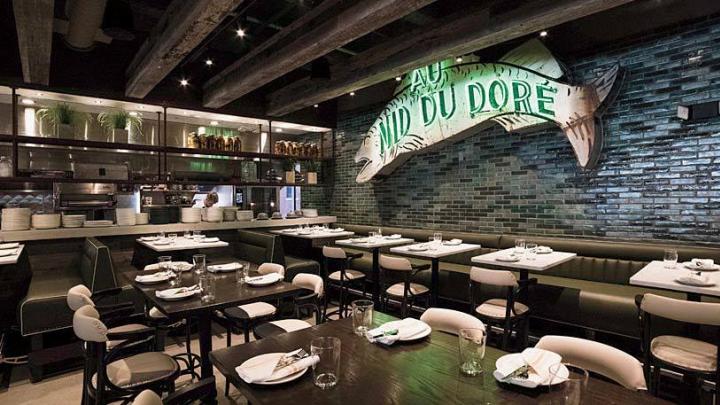Diverse new city restaurants are attracting both tonier grown-ups and the young professionals and students who dominate bars and nightlife—and who simply eat out, a lot. With their long hours, popular themed menus, and intimate ambience, or targeting of connoisseurs, these places are nothing if not accommodating.
The food at Little Donkey is all over the map—in a good way. There’s red lentil and kale dhal ($9): jolts of curry, chilies, and lime juice and pert legumes. Wok-fried chow fun (wide, chewy noodles) swim in a bowl of rich broth with salty black beans and hunks of soft-shell crab ($16). BLT lettuce wraps ($12) come DIY, with lamb bacon and zesty accompaniments—pimento cheese, ripe tomatoes, picked red onion, and sliced plums. Also rich, but thankfully leaner, is the dry-aged beef burger ($15), topped with oniony mayonnaise and a handful of jalapeño chips. These “global tapas” are comfort food at its best. There’s also a cocktail bar, raw bar, pastry bar—and a separate breakfast menu. Little Donkey, named for the dependable creature, takes up a huge and hospitable space in Central Square, and is open from 8 a.m. to 2 a.m. Chef-owners Ken Oringer and Jamie Bissonnette envisioned creating a neighborhood haunt serving diverse inhabitants, the hours they keep, and food that grabs their wide-ranging attention spans.
Mamaleh’s, the new “modern-era Jewish delicatessen” in Kendall Square, is one of the few places around to offer a legitimate chocolate egg cream ($4.50). The traditional New York City beverage (which might have originated among Eastern European immigrants) is a refreshing mélange of whole milk, seltzer, and chocolate-flavored syrup. If that sounds unappetizing, Mamaleh’s soda fountain also serves celery-, lemon-cardamom-, and pickle-flavored sodas—along with milkshakes and ice-cream floats: try a scoop of chocolate with Dr. Brown’s black cherry cola ($6). On to the food. The rich matzo-ball soup ($6/$8) will cure anyone’s lack-of-light winter blues. The knishes—plain potato or packed with pastrami ($4/$6)—are delicate and bold, especially with mustard. And the dreamy roast-beef sandwich, as hefty as its $12 price, came on soft rye bread slathered with horseradish mayonnaise. Open for breakfast, lunch, and dinner, the restaurant has a full bar, with peppy cocktails: “The 866” ($11) combines aquavit, Campari, and grapefruit juice seasoned with salt and dill. The concept and menu occasionally cross into shtick, and some will argue about the spelling of “Mamaleh,” and whether it truly is a Yiddish “term of endearment for a young child,” as the restaurant’s website claims, but the food, and the passion behind it, beckon diners to return.
Across the courtyard, barbecue dominates The Smoke Shop. Champion pitmaster Andy Husbands fulfills messy-meat cravings with a Southern-styled menu featuring dishes like brisket ($19.50) and ribs ($22-$31, depending on the size of the slab). There’s also Thai-flavored fried chicken ($22) and, for vegetarians who dare show up, glazed tofu and mushroom slaw ($11). If indulging in salty-sweet-spicy hunks of meat anyway, it’s hard to resist getting side orders of grits fries ($7), bacon and collard greens ($6), and Texas toast ($3)—extra-thick sliced white bread good for sopping up sauce. The décor is handsome, with a 1970s feel: lots of brown wood, rust-colored walls, and exposed brick. The front bar zone is popular, but can be noisy.
Far less buzzy is Forage, which opened last year in the subterranean space that had long housed Ten Tables (and Craigie Street Bistrot before that). The speakeasy ambience is gone, unfortunately, but new owner Stan Hilbert is appreciably devoted to a “hyper-local, ingredient-driven menu.” Evidence: a salad of chrysanthemum greens ($10)—which taste like the flowers smell, and are used in Asian soups and stews—and a dish of lobster mushrooms ($13). During a visit, the latter came with ripe, fat blackberries, but was otherwise bland. There were two tagines, lamb ($29) and eggplant with yellow-eyed beans ($24). Spiced with preserved lemons, prunes, and mint, the slow-cooked North African stews, paired with crunchy couscous fritters, are an ideal cold-weather meal. A juicy filet of bluefish came with roasted potatoes ($27), but fermented chilies put on such a fiery show, the dish had to be doused (by request) with a dollop of homemade labneh.
As for drinks, other restaurants could learn from Forage’s care with its $8 mocktails. Vinn’s Cup #2 featured rhubarb syrup and a neroli blossom. The excellent wine list emphasizes organic whites and reds, and therefore matches Forage’s grounded feel. The dining room even offered “natural” noise: human conversation, in lieu of loud, piped-in music.
A small, enthusiastic crowd dines at The Table at Season to Taste. The 20-seat restaurant, with plate glass windows that overlook Massachusetts Avenue north of Porter Square, is simply decorated with wooden tables, colorful artwork, and tin lighting fixtures. It grew out of the adjacent catering business and serves a frequently changing, four-course, prix-fixe menu for $65 per person. Wait staff know their food and wine, and are happy to suggest excellent pairings. A sampling of recent fare found rigatoni in a puttanesca sauce with chunks of swordfish; pork belly in a yellow curry sauce; seared hake lathered in cream; and sautéed shrimp with corn and heirloom tomatoes. Chef Carl Dooley, a Cambridge native, abandoned the stoves in the open kitchen to present the evening’s amuse-bouche: handmade corn tortillas with cheese (quesadillas) and a trio of accompaniments, like huitlacoche (a fungus that forms galls on ears of corn, and is a delicacy in Mexico).
For a stepped-up attitude and accompanying haute couture cuisine, Shepard, which replaced neighborhood mainstay Chez Henri, might do. It looks spare and neat, like its food, which constantly changes. The moins petit fare might include rabbit terrine, blistered tomatoes paired with a quail egg, or spelt cavatelli with caramelized crab. (Prices range from $14 to $28.) Waypoint, the new restaurant opened last summer by chef Michael Scelfo (of Alden & Harlow), is also relatively refined, but feels less precious. Its roominess, open kitchens, and raw bar lend a sense of abundance, and “coastally inspired” food is served with enthusiasm. Pizza with chopped clams ($16), fried smelts ($13), and king crab with black rice and brown-butter aioli ($22) just satisfy.
What could be better on a cold night out in Cambridge?
